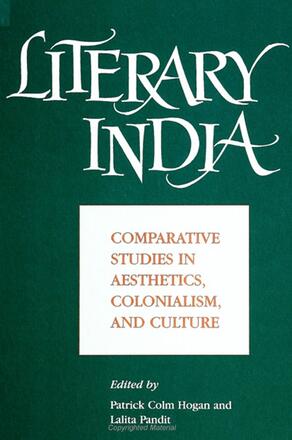
Literary India
Comparative Studies in Aesthetics, Colonialism, and Culture
This book analyzes a variety of materials from the Indian literary tradition. examining both its indigenous development and its relation to the West, and developing ideas from cultural criticism, literary theory, linguistics, and Indology.
Description
This anthology explores the possibilities of a non-Eurocentric comparative literature. Contributors explain and analyze a variety of material from the Indian literary tradition, examining both its indigenous development and its relations with the West. In doing this, they draw upon and develop ideas from cultural criticism, literary theory, linguistics, and Indology.
This book begins with an examination of Indian and Western views on basic concerns of literary theory and aesthetics: authorship, genre, and literary language. Specific works of Indian literature are discussed, as are the striking similarities between eighth-century Sanskrit romances and Shakespeare's late plays; the indirect links of Asian folk and popular dramatic traditions with Bertolt Brecht's epic theater; the oppositional parallelism that marks Kipling's Kim and Tagore's Gora; the suggestive variations on the theme of exile in contemporary Indian cinema and Sophocles' Theban plays. The book ends with a re-consideration of post-colonial theory drawing on both Indian and European sources.
Patrick Colm Hogan is Associate Professor in the Department of English at the University of Connecticut. Lalita Pandit is Associate Professor in the Department of English at the University of Wisconsin at La Crosse.
Reviews
"The breadth of discussion of Indian literature is impressive. Texts analyzed range from classical Sanskrit works to contemporary films. Moreover, the use of comparative literature methodologies is certainly illuminating for those who have been schooled mainly in English literature or South Asian Studies. Comparatist approaches offer rich, new possibilities for literary and cultural analysis. " — Janet M. Powers, Gettysburg College
"In all essays India and its cultural concerns are firmly anchored in global cultural and theoretical perspectives. This focus makes for originality and insight. " — Steven F. Walker, Rutgers University